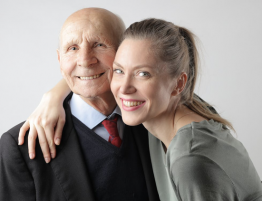
Once a divorce has reached its conclusion, the spouses involved can focus on establishing their lives and getting back on track following the proceedings of the divorce. However, if divorcing spouses have children, then they will need to work together in the aftermath of the divorce so that they can each have a strong relationship with their children with as little conflict as possible.
 It has been demonstrated that children of divorce benefit the most when their parents have a co-parenting arrangement that allows them to spend time and build strong relationships with both parents. Regardless of how the divorce played out, children still have the natural desire to get love and support from both parents which makes co-parenting arrangements very important for their well-being. Children will continue to be affected for a while after the divorce and witnessing conflict between their parents, including arguing and fighting, makes the pain of the split worse. Divorced parents who can successfully co-parent often have less conflict which helps their children adjust to the new parenting situation.
It has been demonstrated that children of divorce benefit the most when their parents have a co-parenting arrangement that allows them to spend time and build strong relationships with both parents. Regardless of how the divorce played out, children still have the natural desire to get love and support from both parents which makes co-parenting arrangements very important for their well-being. Children will continue to be affected for a while after the divorce and witnessing conflict between their parents, including arguing and fighting, makes the pain of the split worse. Divorced parents who can successfully co-parent often have less conflict which helps their children adjust to the new parenting situation.
Co-Parenting vs. Parallel Parenting
Co-parenting arrangements can only be successful if both parents support each other and respect the other parent’s right to have a relationship with their children. If the divorced parents cannot get along, then their children will be exposed to their conflicts which will make matters worse. When parents do not get along in a co-parenting situation, there is a strong tendency for one or both parents to encourage the children to choose sides. The degree to which this occurs will differ between situations, but in extreme cases one parent will manipulate the children to hate or reject the other parent.
For situations in which the divorced parents cannot get along or interact in a respectful manner, they should establish a parallel parenting arrangement. This arrangement is similar to co-parenting except that the divorced parents or more disengaged with each other to avoid interactions that can lead to conflict.
It is important for parents to work together and establish a co-parenting situation after a divorce that will be beneficial for their children. Whether divorced parents should pursue a co-parenting or parallel parenting arrangement depends on the situation between the parents. The following is a description of both post-divorce parenting options to help divorced parents decide which arrangement will work best for their children. The most important thing to remember is that divorced parents must put the well-being of their children above their own conflicts and feelings with each other.
Co-Parenting Arrangements
Co-parenting is an arrangement in which two parents who are not married, living together, or in a romantic relationship take equal responsibility in raising and caring for the children they have together. The main purpose of this arrangement is to guarantee that their children can build strong relationships with both parents and have as close to equal access to each parent as possible. Children that can maintain positive relationships with each parent are much better off psychologically in the aftermath of a divorce and they perform better in school.
The only way for a co-parenting situation to be successful is if both parents communicate with each other respectfully. Parents will need to interact when it comes to pick-ups and drop offs, attending events for their children, and making decisions concerning their children’s lives. Divorced parents must understand the importance of communicating with their ex-spouse in this scenario and be ready to do it with minimal conflicts for the good of their children. It also helps when children recognize the effort put in by both parents to do what is best for them.
Loyalty Conflicts
The importance of divorced parents shielding their children from their conflicts cannot be stressed enough. As discussed above, children naturally want to love and be loved by both parents and witnessing conflict between them just creates anguish and anxiety. When children hear their parents say bad things about each other or have one parent ask them an uncomfortable question about the other, they may start to develop resentment towards their parents. This can result in the children not wanting to spend time with either parent. Divorced parents must be mindful of this and avoid exposing their children to their conflicts or using them as a messenger to the other parent.
Parallel Parenting
If divorced parents understand that they simply cannot interact peacefully, even with their children present, then they should establish a parallel parenting arrangement. Parallel parenting is a form of co-parenting in which both parents are disengaged from each other but are very much involved with their children. Parents in this situation limit their interactions with each other as much as possible to avoid conflicts in front of their children. They may still have to communicate with each other when it comes to making important decisions about their children, but the day-today parenting is kept separate.
Parents in a parallel parenting situation should follow these guidelines so this arrangement can be successful:
- Limit your interactions and make sure any communication is kept professional and non-personal. Keep the conversation to relevant information concerning the children.
- Do not communicate with the other parent through your children.
- All schedule changes must be agreed upon by both parents.
- Parents should avoid sharing personal information with each other.
- Have schedules set in writing to help minimize interactions and conflict.
There are some cases where parallel parenting situations minimize the conflict between the parents enough that they can eventually adopt a co-parenting approach. As long as the parents remember to always put the feelings and well-being of their children above their own, their children will benefit from a parallel parenting situation.
The Benefits of Successful Co-Parenting and Parallel Parenting
Maintaining a successful co-parenting or parallel parenting arrangement with your ex-spouse will have the following benefits for your children:
- Better sense of self and security: Children who develop close relationships with both parents have higher self-esteem than those who don’t.
- More psychologically adjusted: Children who spend equal time with both of their divorced parents are better adjusted psychologically and are less likely to have trust issues as adults.
- Healthier template for interaction: Children who recognize the cooperation between their divorced parents will have a healthier idea of how to interact with others.
- Good communication skills: Children pick up good communication skills from watching their parents effectively and respectfully communicate with each other.
- Better problem-solving skills: Once again, children can pick up these skills from watching their parents cooperate and resolve any issues they may have.
Work with a Divorce Attorney
Whether you and your ex-spouse have chosen to work with a co-parenting or parallel parenting arrangement, you must keep a respectful relationship with your ex-spouse and make sure that you are always putting the well-being of your children first. Your children have a right to develop strong relationships with both parents just like each parent has the right to be an equal part of their children’s lives. Following these guidelines will benefit your children immensely as they move passed the divorce.
If you are currently going through a divorce involving children and need legal representation, our divorce lawyers at Allen Gabe Law, P.C. can help. Our attorneys are experienced dealing with all matters of a divorce and family law, including child custody agreements, and we will always put the best interests of your children first.
Give us a call at (847) 241-5000, ext. 121 to schedule an initial consultation regarding our divorce law services.







